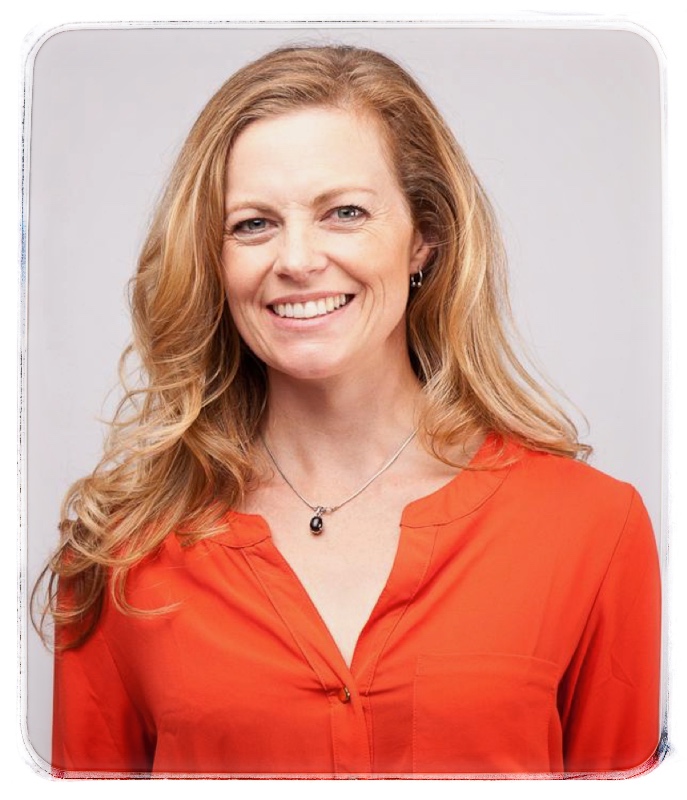I’m Markita Landry, I’m an assistant professor in the department of chemical and biomolecular engineering at UC Berkeley. I study how nanoparticles can be functionalized synthetically to be useful for biological applications ranging from imaging to gene editing.
What drove me into science was curiosity. The bulk of my training has been in curiosity-based science. I was curious as a child. Growing up, I liked testing things and probing things. I wanted to be extra sure and extra careful that something that I came across was validated or that the data held up to my hypotheses. My upbringing in living in many different places and traveling to many different places has helped me contextualize the world as something that remains to be explored. Part of what I enjoy about doing science is that it also is something that remains to be explored.
Having my parents in the education system, having them both be teachers now, and having my Mom as an engineer and a role model motivated me to consider that as a career option as opposed to just a hobby. When I started my undergraduate career, I was pre-med for maybe an hour or so and realized fairly quickly that I was interested in more engineering approaches to biological sciences as opposed to the biological sciences themselves. I think I was fortunate to train in fairly basic fundamental sciences, physics and chemistry, which allowed me to have an appreciation for the laws by which matter in the universe abides. What I’m passionate about now is exploiting that training in engineering to make tools that can then turn around and probe those fundamental interactions.
The focus of my research is to develop nanoscale probes that can be used either to image molecules in biological systems or to deliver functional vital molecules to biological systems. The importance of this work is in our ability to either see things that we wouldn’t normally be able to see in biological systems or to deliver a functional bio-cargo to systems such that we can engineer those systems genetically to be more desirable.
One question that I’m trying to answer is how antidepressants and antipsychotics are affecting the kinetics of neurotransmitter release and reuptake in the brain. We have developed probes that are selective for the neuromodulator known as dopamine, which is a common target for antidepressants and antipsychotics. On the one hand, we’re studying how the nano-materials we use might be influencing the role of microglial cells, which are cells that are the resident immune cells of the brain.
And then for brain chemistry, we’re interested in seeing what the effects of currently available dopamine reuptake blockers such as antidepressants are having on brain chemistry, how those are affecting the kinetics. And really just zooming into different cells in the brain to see why there might be so many negative side effects of using antidepressants or antipsychotics, and why these drugs seem to have very high patient-to-patient variabilities. What we might be able to do, again from a molecular perspective on increasing the efficacy of the drugs and decreasing their off-target effects.
The other big question that I’m trying to address is how we can functionalize nanomaterials to better deliver functional, biological cargo for gene editing implants. When we talk about genetically engineered plants, the end goal is not necessarily to give them superpowers but to make them able to live in a changing global climate and reduce landmass on which to grow crops. So, it’s not so much a matter of them becoming super plants so much as it is kind of resuscitating the diminishing quality and quantity of plant and agricultural matter that we’re producing.
Even broader than that, my goal is to produce science that is interesting, insightful, and useful. And the reason that I have those goals specifically as a professor is that I want to be in the pursuit of those goals with students and postdocs and I’d say both of those aspects of this job contribute to how much I really enjoy it. So, I want to produce good science and I want to produce good scientists in the process too.

By Kirsten “Dr. Kiki” Sanford
Dr. Kiki Sanford holds a doctorate in Molecular, Cellular and Integrative Physiology with an emphasis in Neurobiology from the University of California, Davis, and is a specialist in learning and memory. She hosts and produces the ‘This Week in Science’ (TWIS) podcast and hosts ‘The Stem Cell Podcast’.
She has appeared on programming from H2 (The History Channel’s ‘How 2 Win’ series), Discovery Digital Network (‘DNews’), Inside Edition, Revision3 (‘PopSiren’), OnNetworks (‘Food Science’), The Video Project, The Science Channel (‘Brink’), TWiT.TV, and CBS’s The Doctors. She has also written for Scientific American, TechCrunch, Forbes, Discover, and Boing Boing. Her most recent entrepreneurial adventure, Broader Impacts Productions, aims to help scientists tell their stories to the world.
Dr. Kiki has a black belt in Taekwondo, loves robots and fire, and wants to craft a better future for human spawn everywhere.
